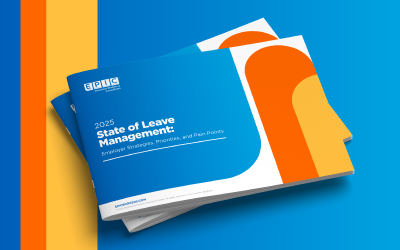A little bit of healthcare history. In December 2016, President Obama signed the 21st Century Cures Act, which, among other things, reinstated the ability for small employers (fewer than 50 employees) to reimburse their employees for purchasing health insurance on an individual market as long as those employers met several guidelines. The vehicle for this reimbursement was the Qualified Small Employer Health Reimbursement Arrangement (QSEHRA).
These plans gained traction in some markets, and in 2018, the Trump administration issued additional guidance to expand the use of these Health Reimbursement Arrangements (HRAs). In 2019, newly finalized rules created two novel types of HRAs: the Individual Coverage HRA (ICHRA) and the Excepted Benefits HRA.
Viewpoints from Matt Presutti
The Individual Coverage HRA lets employers of any size consider allowing employees to choose plans from the individual market while subsidizing those purchases to remain compliant with the Affordable Care Act (ACA).
In short, an employer creates an HRA through which they reimburse employees for the cost of the purchase of individual health insurance through an individual exchange. The employer contributions must be set at a level that is compliant with ACA rules to avoid penalties. The employer retains the tax benefits of subsidizing the program and the employee enjoys employer support towards the cost of health and prescription coverage.
If employees need to make up any difference between the employer’s monthly reimbursement and the total insurance cost, the employee simply does so through a voluntary contribution.
The upside: An employer is out of the health insurance business, and employees are able to make the best decision for their families.
Since these are portable individual plans, there is no Consolidated Omnibus Budget Reconciliation Act (COBRA) exposure on the health and prescription programs – these plans can be taken from job to job. The employer retains a tax-advantaged status and is not concerned about the annual health plan renewal dance except to remain within the ACA-compliant contribution thresholds.
This sounds a lot like a 401(k), right? In truth, the concept (a defined contribution) is similar to that; however, it is not without pitfalls.
The downside: Individual market plans are often less generous than group plans.
Specifically, many have only in-network benefits, narrow networks, and high deductibles. Prescription drug formularies are different and rates can vary, sometimes widely, from state to state. Employees have to become savvy consumers, and proper communications are paramount to a successful rollout. And though there is generally bipartisan support for ICHRAs at the moment, the expansion of this concept to larger employers came via executive order and could be undone in the same fashion.
EPIC views ICHRAs as a part of a healthy insurance purchasing spectrum.
ICHRAs are not for everyone, but having more choices for your employees, and having them understand that choice, is important. Additionally, I believe more enrollees in the individual marketplaces can help the solvency of those exchanges by broadening the risk pools. This outcome helps everyone since better solvency yields stable rates and, hopefully, fewer uninsured lives in the long run.
EPIC has teamed up with Take Command Health to engage interested clients in the thoughtful evaluation and communication of the ICHRA model. Their experience in this space provides terrific support for employers and members, and their tools are easy to use and understand.
To learn more about the ICHRA model, reach out to your EPIC account executive, or contact us.
Check out more of our EPIC Resources:
Visit the EPIC coronavirus update center for COVID-19 information
Sign up for EPIC Newsletters in one convenient location
See results from our In It Together pulse surveys on our COVID-19 strategic collaboration and idea-sharing forum
EPIC offers these opinions for general information only. EPIC does not intend this material to be, nor may any person receiving this information construe or rely on this material as, tax or legal advice. The matters addressed in this article and any related discussions or correspondence should be reviewed and discussed with legal counsel prior to acting or relying on these materials.
Related Content
Products
Employee Benefits Consulting
Our dedicated benefits team is focused on delivering better outcomes – to both your benefits program and ...
Products
Compliance
We provide comprehensive consulting services and in-depth education regarding the ever-changing employee ...
Products
Actuarial
Our Actuarial Team provides guidance on employee benefits and health and welfare programs to help meet ...



